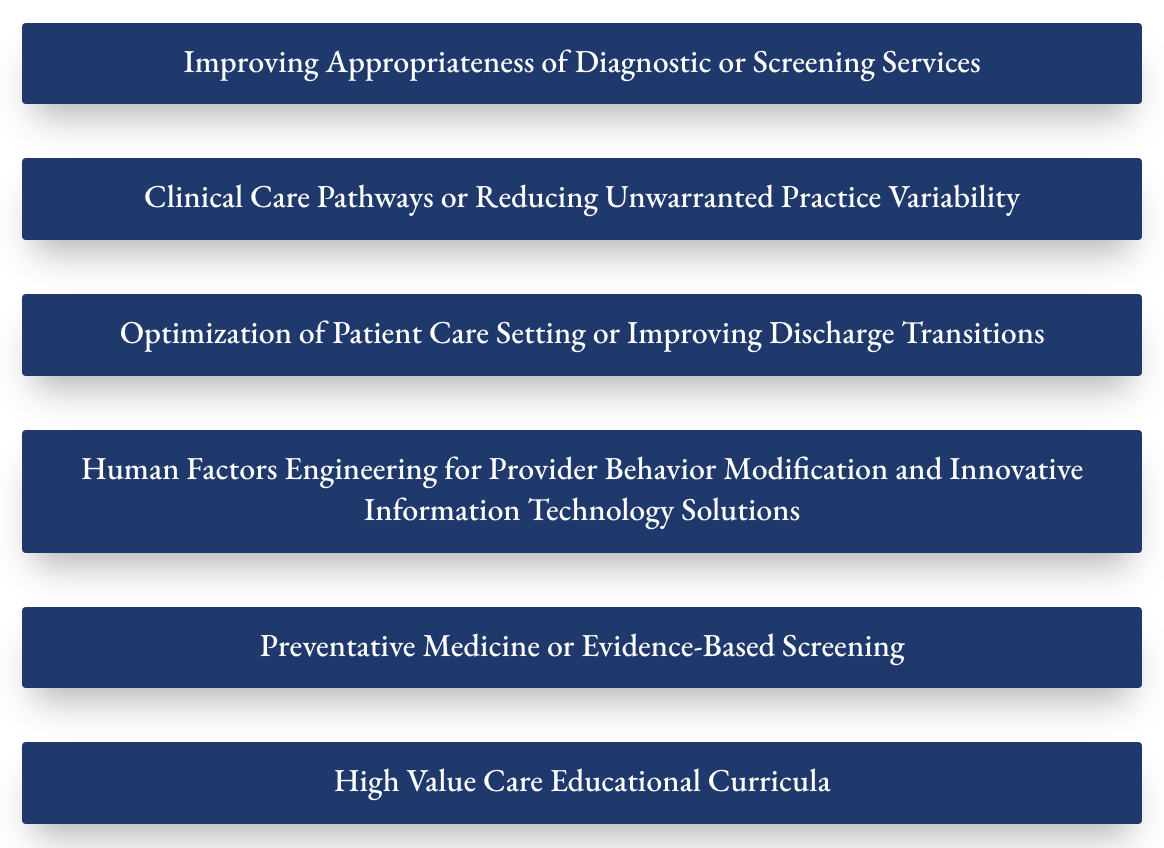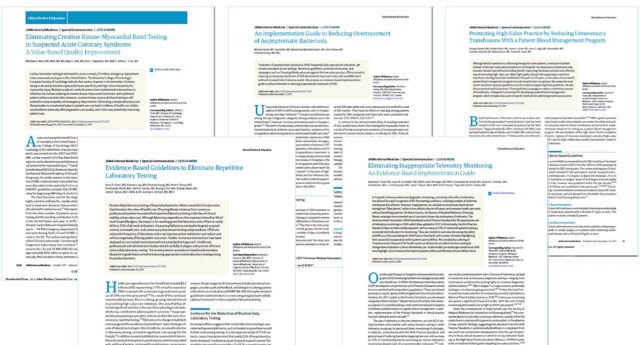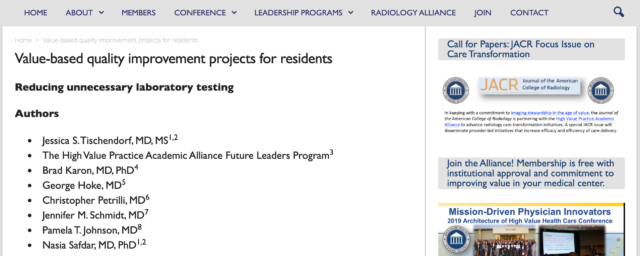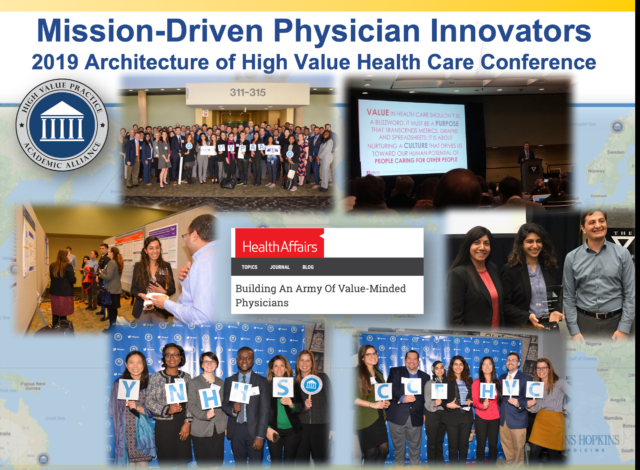From the 2019 HVPAA National Conference
Dr. Aravdeep Jhand (Creighton University School of Medicine), Dr. Amr Essa (Creighton University School of Medicine), Dr. Mohammed Saleh (Creighton University School of Medicine), Dr. Venkata Andukuri (Creighton University School of Medicine)
Background
With steadily rising healthcare expenditure over last few decades, there has been an emphasis on providing high value care (HVC). HVC focuses on attaining the best patient outcomes while efficiently using available resources. Various medical societies emphasize incorporating HVC as a part of curriculum in medical education to train physicians that will meet the needs of a rapidly evolving healthcare landscape.
Aim
We sought to develop a curriculum for Internal Medicine Residency Program at Creighton University with an objective to introduce the concepts of HVC to our trainees and provide them with resources and strategies to cut down on healthcare associated costs and wastes.
Methods
Using American College of Physicians and Dell Medical School’s HVC modules we designed an interactive series of five-hourly didactic sessions that were conducted over a period of six months. Topics covered included:
1. Eliminating Healthcare wastes and over-ordering of tests
2. High Value Hospitalization
3. High Value Prescription
4. High Value Communication
5. Overcoming Barriers to High Value Care
A needs assessment survey was done prior to the launch of the curriculum and another survey was done at the completion to assess the success of curriculum in meeting its objectives.
Results
47 out of 72 residents (65.2%) completed the needs assessment survey. 45% of respondents reported never receiving education about value in healthcare prior to entering residency. Only 17% of respondents reported having adequate access to information about the costs of various labs, imaging studies and procedures that are routinely ordered. While majority of respondents thought that it was essential to factor in costs of testing and treatment during patient care, only 25.5% were comfortable with their skills of factoring costs while providing care. This increased to 47.3% at the conclusion of the curriculum. 49% of respondents reported that the curriculum was either “helpful” or “very helpful” in providing them with resources and strategies to discuss costs of tests and treatments with patients. Only 10.52% of the respondents thought that the curriculum was either “unhelpful” or “very unhelpful” in providing them with resources and strategies to minimize over-ordering of tests.
Follow-up action
Incorporating HVC teaching points using case based learning in our morning report.
Conclusion
We describe our experience in implementing a high value care curriculum for our Internal Medicine Residency Program.





